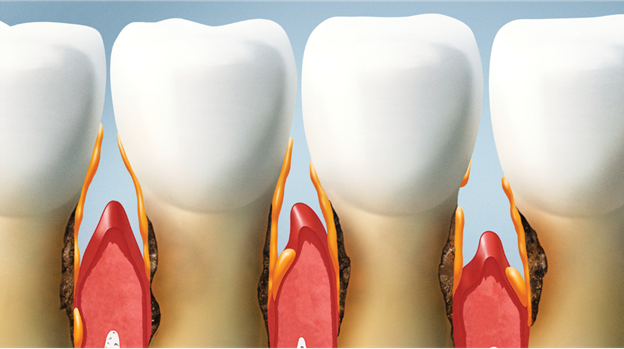Your oral health is an integral part of your overall well-being, and gum disease is a prevalent issue that requires careful attention. It’s crucial to understand the different stages of gum disease, namely gingivitis and periodontitis, and to be informed about effective treatments. In this in-depth guide, we will explore these stages, highlight their differences, and discuss proven methods to maintain healthy gums and a dazzling smile.
Unraveling the Complexity of Gum Disease
Before we dive into the specifics, let’s gain a comprehensive understanding of gum disease, also known as periodontal disease. This condition involves inflammation that affects the tissues surrounding your teeth, typically advancing through two primary stages: gingivitis and periodontitis.
Gingivitis: The Initial Stage
Gingivitis marks the earliest stage of gum disease and manifests through:
- Gums appearing red and swollen
- Occasional bleeding during brushing or flossing
- Mild discomfort or tenderness
The encouraging news is that gingivitis is often reversible with dedicated oral care. Regular dental check-ups, professional cleanings, and a diligent home care routine can effectively treat and prevent gingivitis.
Periodontitis: An Advanced Challenge
Should gingivitis remain untreated, it may progress into periodontitis, a more advanced and severe stage. Signs of periodontitis include:
- Receding gumlines
- Formation of pockets between teeth and gums
- Loss of the supporting bone around teeth
Treating periodontitis typically necessitates more intricate procedures, such as scaling and root planing, antibiotics, or, in some cases, surgical interventions. Detecting and addressing periodontitis in its early stages is vital for successful treatment.
Key Distinctions Unveiled
Now, let’s delve into the essential distinctions that set gingivitis and periodontitis apart:
- Reversibility: Gingivitis is generally reversible with proper care, while periodontitis may lead to irreversible damage and tooth loss.
- Symptom Severity: Gingivitis exhibits milder symptoms, typically involving minimal discomfort, whereas periodontitis symptoms are more severe and can have significant consequences.
- Treatment Complexity: Gingivitis can be effectively managed with routine dental cleanings and improved home care, whereas treating periodontitis may involve more complex and specialized treatments.
Empowering Prevention and Home Care
Preventing gum disease is your first and foremost defense. Here are some user-friendly tips:
- Establish a daily routine of brushing and flossing to remove plaque buildup.
- Schedule and attend regular dental check-ups and cleanings.
- Say no to smoking, as it significantly heightens the risk of gum disease.
- Embrace a balanced diet rich in fruits and vegetables to support gum health.
The Vital Role of Dental Professionals
Your dentist is an essential partner in the prevention, diagnosis, and treatment of gum disease. Consistent dental visits enable early detection and timely intervention, leading to more favorable outcomes.
In Conclusion
Gingivitis and periodontitis represent stages of gum disease that merit attention and care. Timely detection and appropriate treatment are pivotal for maintaining healthy gums and a confident smile. If you suspect gum disease or have concerns about your oral health, do not hesitate to reach out to your trusted dentist. With the right guidance and commitment, you can safeguard your gum health and enjoy a radiant smile for years to come.

